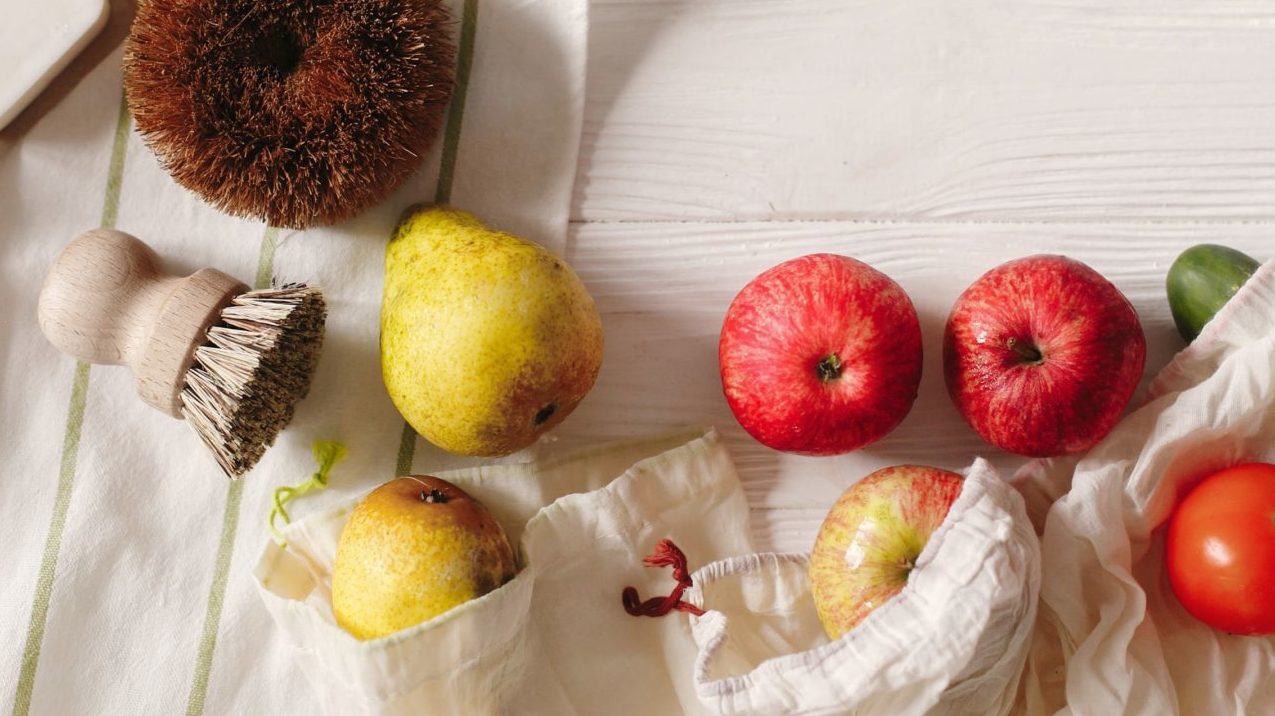
Presented by Amber Haukedahl of Tare Market and the blog Zero Wasted
The “zero-waste” philosophy emulates sustainable natural resource cycles where “waste” is reused for other purposes and nothing is sent to a landfill, incinerator, or other form of disposal. Living a zero-waste lifestyle means limiting the number of brand-new items entering your home, evaluating and reducing your consumption, reusing items you already have, recycling what you can, and implementing a system for utilizing organic waste instead of disposing of it.
Why strive for zero waste? When trash sits in a landfill, it off-gases methane, a greenhouse gas more potent than carbon dioxide. Plus, incinerators are disproportionally placed in areas where residents are predominately people of color or low-income, contributing to large environmental-justice issues. Unfortunately, landfills and incinerators are filled with millions of tons of food that could otherwise be composted and used for growing healthful food, planting trees, reducing soil erosion, and more. Moving towards a zero-waste lifestyle is good not only for you, but also for your family, your community, and the planet! Here are a few simple steps you can take toward living zero waste.
Conduct a Home Trash Audit
Go through each trash can in your home to see what you’re throwing away. Look at each item individually and ask yourself, “is there an alternative product that doesn’t have a waste byproduct?” You’ll quickly find yourself decreasing the amount you waste.
PRO TIP: Next time you shop, look for items that are reusable instead of disposable and food items packaged with compostable materials or recyclable byproducts.
Start Composting
To start, keep a container inside to hold your food scraps. If you have the space, use a second larger container outside. When your indoor container is full, empty the contents into the outdoor one. Turn or mix your outdoor container as much as possible, adding leaves or cardboard occasionally.
PRO TIP: If you’re limited on outdoor space, utilize a city compost drop-off site, curbside pickup, or join a community composting program.
Reuse Containers & Shop Bulk
Reuse containers to limit the amount of new packaging you purchase at the co-op. Clean canning jars, peanut butter tubs, coffee and oatmeal containers, and pasta sauce jars work well for shopping the bulk aisle. You can also reuse egg cartons and glass milk jugs when buying these items new to reduce waste.
PRO TIP: By using your own reusable containers and buying in bulk, you’ll reduce both your food and packaging waste while saving money.

